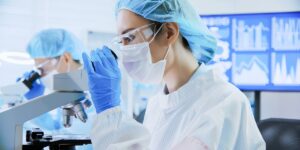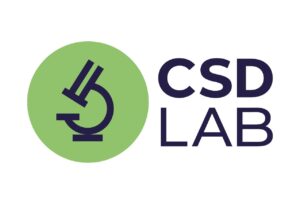
The demand for diagnostics and endoscopic examinations has not declined critically since the start of the full-scale war, but the financial factor had a significant impact on the decline in demand, experts interviewed by Interfax-Ukraine believe.
“At the beginning of the full-scale invasion, for objective reasons, the demand for medical services, among which diagnostics plays a significant role, decreased. However, unlike in other areas, the direction of medical services to relatively safe regions of the country did not have critical consequences. Obviously, this is due to the large number of temporarily displaced persons, including many children and young people who are working,” said Yaroslav Mudry, an endoscopist at the Leleka Multidisciplinary Medical Center.
At the same time, according to him, “against the background of general inflation, the cost of endoscopic diagnostics has also increased.”
He emphasized that, just like before the full-scale war, Ukrainians’ visits to medical institutions for diagnostics are most often caused by symptoms of existing diseases or control observations after treatment, in particular, control after tumor removal or diagnosis of tumors at late stages.
“Unfortunately, the level of preventive diagnostics and research is extremely low,” said Mudryi.
In particular, he emphasized that in Ukraine, compared to other European countries, the number of patients with colorectal cancer, which often has no symptoms, remains quite high, but “there is currently a positive trend, we see an increase in the number of cases of early diagnosis (screening colonoscopy).”
“I am convinced that this situation looks optimistic,” said the endoscopist.
At the same time, Mudryi emphasized that Leleka uses “all possible factors to increase the level of effective diagnosis of masses (colon polyps), which, in turn, will reduce the level of new cases of colorectal cancer.”
The clinic’s specialists help patients at the most difficult stage – preparation for the procedure, which helps to improve the quality of diagnosis, and during the examination they use additional accessories and disposable consumables to remove the tumors.
For her part, Lyudmyla Svatko, Head of Diagnostic Service at Adonis Medical Group, also noted that since the beginning of the full-scale invasion, “we have experienced a decrease in the flow of patients, but this was more related to the evacuation, but with the return of the population, the need for diagnostics has increased, even increased due to the exacerbation of health problems due to stress and adverse conditions.”
“We have returned to the pre-war level of utilization of our diagnostic departments, and we even see an increasing demand,” she said.
According to her, MRI of the head, cervical and lumbar spine, and knee examinations are currently in the highest demand among the population.
In addition, thanks to Adonis’ active cooperation with charitable foundations, the clinic conducts a significant number of studies related to military injuries, including the effects of shell shock, trauma, shrapnel detection, and studies related to preparation for further rehabilitation at the clinic.
In addition, Adonis notes an increase in demand for mammography and breast MRI among women, which doctors attribute to the constant stress Ukrainian women are under.
At the same time, Svatko noted that studies using large medical equipment, such as CT and MRI, are key to diagnosing the wounded and continue to be in demand among the study population.
“Unfortunately, we state the fact that patients have started to undergo annual examinations untimely due to the displacement and are coming with more serious diseases that require more complex studies,” she said.
At the same time, Svatko noted that Adonis is one of the few medical networks that have not stopped working since the beginning of the war and can always provide qualified medical care.
“Our diagnostic equipment has fully autonomous power sources in case of water and electricity outages, so we can see patients without reducing turnover regardless of the circumstances,” she said.
At the same time, Svatko estimates that the cost of servicing imported large medical equipment has increased since the start of the full-scale invasion.
“Now the service takes up most of the budget, we wait longer for repairs because it is related to logistics and the situation with carriers on the border with Europe. It has become more difficult to service and maintain the equipment,” she said.
DEMAND, diagnostic services, diagnostics, medical clinics, Mudry, Stork, АДОНИС, Сватко

It has long been known that the body’s response to various drugs, and thus the effectiveness of treatment, depends on the metabolic characteristics of each individual. But the study of genetic factors that affect chemical transformations in the body began only in the 20th century.
The paradigm of “treating the patient, not the disease” resulted in the concept of “personalized medicine”. The essence of personalized medicine is the individualization of drug therapy. The response to a drug, the optimal class of drug, its dose and mode of administration are determined, at least in part, by genetic determinants. Pharmacogenetics seeks to identify genes and their variants that determine the adequacy of pharmacotherapy and reduce the risk of side effects.
For a modern doctor, pharmacogenetics is a convenient and affordable tool to increase the effectiveness of evidence-based therapy for many diseases and, at the same time, reduce the likelihood of side effects. For a patient, pharmacogenetics means confidence that the drug prescribed by a doctor will act reliably and predictably, and will show maximum therapeutic effectiveness.
What needs to be done for this? Investigate the genetic information of a particular person regarding the genes that affect drug transport.
CSD LAB has long established itself as a progressive and innovative laboratory that implements modern diagnostic methods that should be useful to doctors for prescribing effective therapy. This spring, we created the Development and Innovation Department, which aims to develop diagnostic capabilities and medical science for their further implementation in the everyday life of the Ukrainian medical community.
From now on, the first pharmacogenetics services have been introduced in the list of CSD LAB laboratory diagnostics.
What pharmacogenetics tools are available in Ukraine today?
Currently, CSD LAB offers two tests that will allow individualizing the treatment of many diseases.
1. CYP2C9 (analysis of polymorphism of alleles *2, *3) and VKORC1 (analysis of G1639A polymorphism), determination of warfarin sensitivity, PCR, blood \ N
https://www.csdlab.ua/analyzes/farmakohenetka/cyp2c19-analiz-polimorfizmu-aleley-2-3-ta-vkorc1-analiz-polimorfizmu-g1639a
The test determines sensitivity to warfarin by detecting CYP2C9*2, CYP2C9*3 and VKORC1 G1639A mutations in human genomic DNA by real-time PCR.
The most common complication of warfarin therapy is bleeding, the risk of which can be reduced by 35%, and taking into account other factors (patient weight, prescription of other medications, etc.) – by 50%.
Warfarin is used for the treatment and prevention of deep vein thrombosis and pulmonary embolism, for the secondary prevention of myocardial infarction and prevention of thromboembolic complications (stroke or systemic embolism) after myocardial infarction, for the prevention of thromboembolic complications in patients with atrial fibrillation, heart disease or prosthetic heart valves, prevention of dynamic cerebrovascular disorders and stroke, and prevention of postoperative thrombosis.
2. CYP2C19 (analysis of allele polymorphism *2, *3, *17) PCR, blood \ N
https://www.csdlab.ua/analyzes/farmakohenetka/cyp2c19-analiz-polimorfizmu-aleley-2-3-17-plr-krov-n
This genetic test will allow you to determine the variations of the CYP2C19 gene (CYP2C19*2, CYP2C19*3 CYP2C19*17).
CYP2C19 is a clinically important enzyme involved in the biotransformation of a number of antidepressants, anticoagulants, and antimycotic drugs. For example, clopidogrel is a very effective antiplatelet drug whose action is based on irreversible inhibition of the platelet receptor P2RY12. However, in some patients, the therapeutic effect of the drug does not manifest itself, which is why it is necessary to change the drug, losing time in the patient’s treatment.
Why does this happen? The answer is simple: clopidogrel is a prodrug, which is activated by the cytochrome P450 complex, mainly CYP2C19. With a certain gene variant, this does not happen and the effectiveness of the drug is significantly reduced. In this case, you should choose another antiplatelet drug.
How to work with this?
The main goal of pharmacogenetics is to use the patient’s individual genetic information to inform and prescribe the most effective type and dose of drugs. Currently, targeted diagnostics and treatment of a patient can be determined according to the results of a study of his or her genetic profile, which makes pharmacotherapy for patients as effective, safe and affordable as possible.
However, personalized medicine is a relatively new area of medicine in general, and the new approach is to test patients for possible reactions to new drugs and to develop a treatment based on the test results.
In order to help Ukrainian doctors better understand pharmacogenetics, CSD LAB plans to hold a course of lectures on pharmacogenetics this fall.